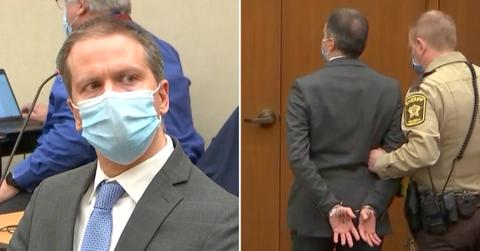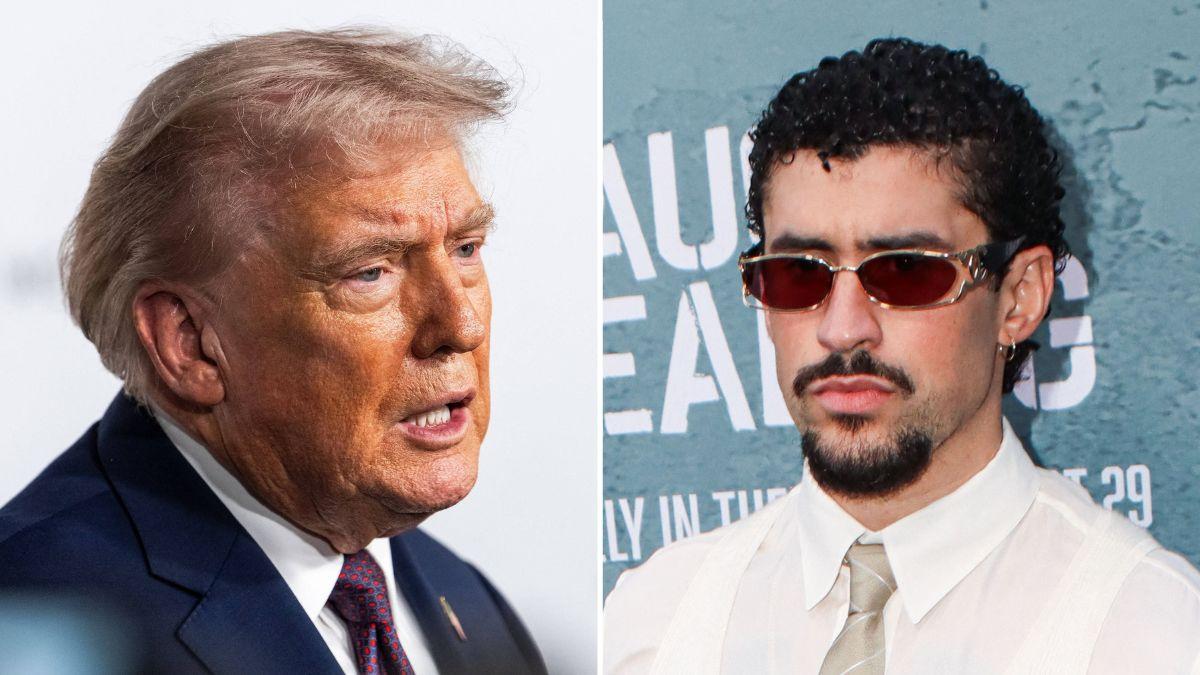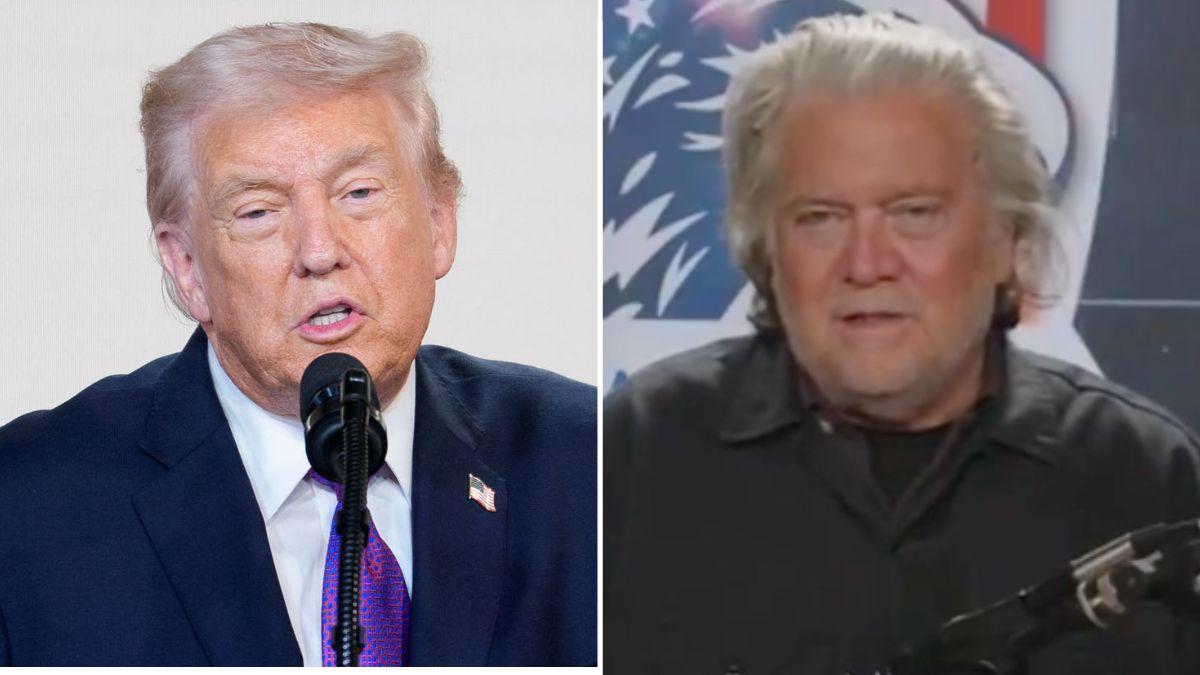Convicted Murderer Derek Chauvin Wrote His Attorney's Phone Number On His Hand Before Being Taken Into Custody

April 21 2021, Updated 10:20 a.m. ET
While Derek Chauvin was being handcuffed and taken into custody Tuesday afternoon for the murder of George Floyd, photographers captured images of the disgraced former cop that appeared to show some sort of writing on his hand.
A Bible verse? A quote? The words "I'm sorry, Floyd family"?
No. Chauvin actually wrote the phone number of his lead defense attorney, Eric Nelson, on the palm of his hand in black ink prior to his conviction so that he would be able to call his lawyer should he be found guilty of second-degree murder, the most serious of his three charges.
And that's exactly what happened.
According to reports, Chauvin knew that if the jury found him guilty of second-degree murder, he'd likely have his bail revoked and be taken into custody immediately.
After announcing that the 12-person jury concluded Chauvin was also guilty of third-degree murder and second-degree manslaughter, Judge Peter Cahill did, indeed, revoke Chauvin's bail. He will be staying at the Minnesota Correctional Facility in Oak Park Heights, Minnesota, until his sentencing in eight weeks.
Though not confirmed, a call from an imprisoned Chauvin to Nelson would almost certainly be about filing an appeal, but considering about 90 percent of appeals are denied nationwide, the odds are not in Chauvin's favor.
According to criminal defense experts, the concerns Chauvin's lawyers might raise to the appellate court can range from the possibility of juror bias, to the refusal by the judge to move the trial or sequester the jury.
Chauvin could also reportedly argue ineffective assistance of counsel, given that Nelson did not often object to witnesses' emotional testimonies.

But again, the success rate of an appeal is around 10 percent. Plus, it's not likely that the Minnesota appellate court, which is made up of elected officials, would easily overturn one of the most contentious, racial, high-profile murder cases in American history.
Chauvin faces a 40-year sentence for his second-degree murder conviction, a 25-year sentence for his third-degree murder conviction, and a 10-year sentence for his second-degree manslaughter conviction.


